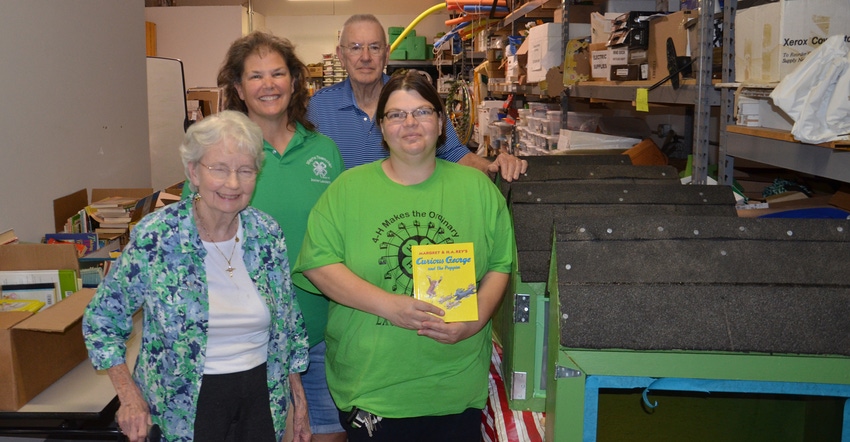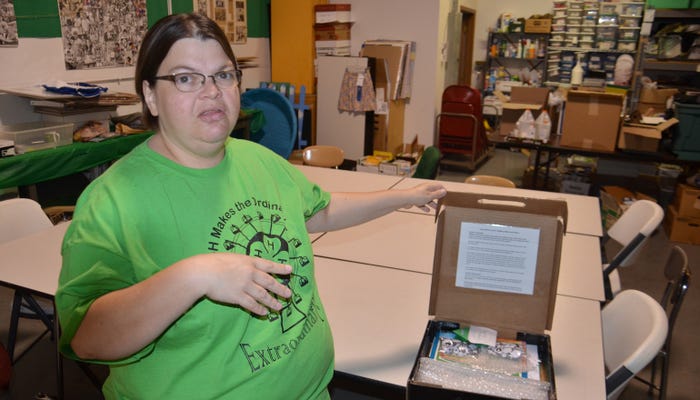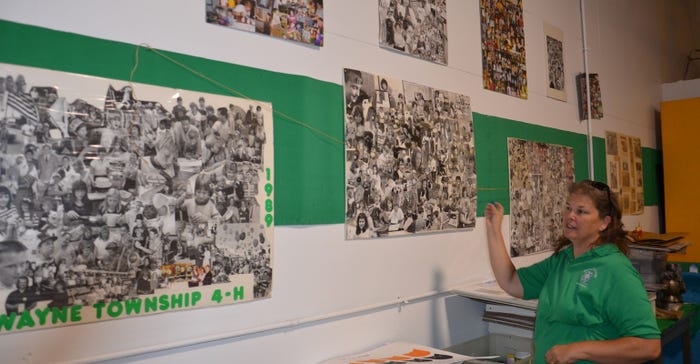
Once upon a time in Indiana … no, this isn’t a fairy tale, although it might sound like one. In the heyday of traditional 4-H programs, several school districts throughout Indiana supported local 4-H programs by offering a stipend for 4-H leaders. Often the leader was the local ag instructor. Naturally, they were in rural areas.
Nearly all those connections have disappeared. All but one, and it’s in Marion County — the most urban county in Indiana. The Wayne Township 4-H program has a director, an assistant director and an office, all supported by Wayne Township Schools. Once very traditional, today Wayne Township 4-H offers modern programming. But it hasn’t forgotten its traditional roots.
“We enjoy great support from Wayne Township Schools, beginning with the superintendent,” says Alice Sweeney, Wayne Township 4-H director. Her position is half time, and she’s supported by a part-time assistant, Cara Kowal.
“We have active programming in six of 11 elementary schools,” Sweeney continues. “Many club meetings are after school, and we also offer workshops for students.”
The Wayne Township 4-H program isn’t directly affiliated with Purdue University Extension, Sweeney notes, but works in conjunction with Marion County 4-H educators. An advisory board of Wayne Township volunteers provides guidance and financial support for projects. Bob and Pat Eddleman, former 4-H parents, are longtime advisory board members.
“Wayne Township is primarily an urban program today,” Bob notes. In the 1990s, there were 17 traditional 4-H clubs in the township. Today there are three, plus the Junior Leaders group.
Modern programming
Children still enroll in traditional projects today, Eddleman notes. The Wayne Township 4-H Fair, a longtime tradition, is still held each year. In fact, many local 4-H members exhibit there but not at the Marion County Fair, which begins about 10 days after school ends.
“Location is part of it,” Kowal explains. “The fairgrounds are on the other side of the county. Ten miles is a big deal for many of our families.”
Besides traditional 4-H projects, Wayne Township 4-H offers workshops throughout the year.
“Leathercraft is very popular,” Kowal says. “The Central Indiana Leathercrafters help with it. We often hold workshops during school breaks. Most are well-attended.”

WORKSHOP KITS: Cara Kowal displays a workshop kit used in modern programming in the Wayne Township 4-H program in Marion County, Ind.

Other counties have introduced Spark clubs to extend programming beyond traditional 4-H offerings. These are typically a series of sessions one topic. “We’ve found those useful,” Sweeney says. “We offer programming which will help us reach as many kids as possible.”
One of their most supportive elementary principals oversees a school with 100% free and reduced-lunch enrollment, Sweeney notes. Much of the school population is transient. “It takes special programming like Spark clubs to reach those students,” she says.
Traditional ties
The long history of Wayne Township 4-H is never forgotten however, Sweeney says. It dates to the 1940s, when the area was known as Garden City. One large wall within the 4-H workroom is covered with posters featuring pictures of 4-H members and events going back decades.

HISTORY AND TRADITION: Alice Sweeney points to various posters that recall the long history of Wayne Township 4-H. The poster on the far left is from the 1980s.

Sweeney believes part of their success lies in the makeup of the staff and volunteers, who understand both traditional and urban needs. She was a 10-year 4-H member in Johnson County, but her husband grew up in a metropolitan area and had never heard of 4-H. Kowal was active in 4-H in Marshall County. Bob Eddleman was a 4-H member in Crawford County, but wife Pat wasn’t involved in 4-H.
“It came along with Bob,” she quips. Ironically, she was the Wayne Township 4-H director for 20 years, dating back to the 1980s.
Sweeney also credits their success to working with many other community groups. They’re currently finishing 10 Little Free Libraries, six of which will be placed at local elementary schools so students have access to books.
“We’ve worked with Indy Parks, YMCA and many other community groups,” Sweeney says. “A big part of the positive reputation of 4-H in our township relates back to community involvement and community support.”
About the Author(s)
You May Also Like




